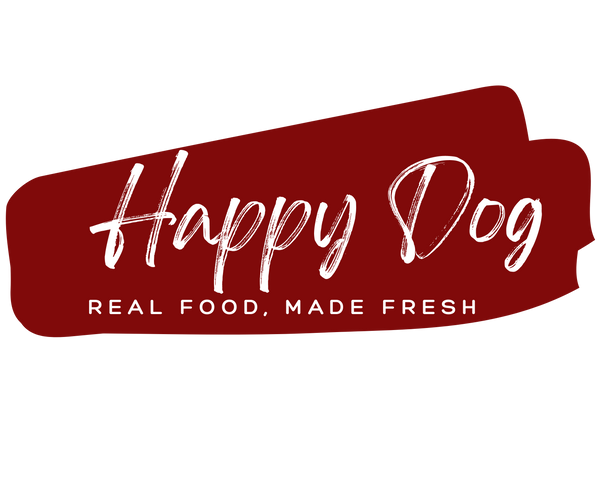
When and Why Your Dog Needs Dietary Supplements
Summary
Dog supplements fill important nutritional gaps for pets with specific needs - from puppies to seniors and those with health challenges. The right vitamins and minerals can improve your dog's joint health, digestion, skin, coat, and overall wellbeing when chosen thoughtfully and used alongside quality food and regular vet care. Remember to consult your veterinarian before starting any supplement regimen, as they can help identify exactly what your unique furry friend needs to thrive.
Is your furry friend slowing down, scratching more, or just not as energetic as before? Your dog might be missing key nutrients in their diet. Many pet parents worry about what to feed their dogs but overlook the importance of supplements that could make a world of difference in their pet's quality of life.
In this article, we'll explore when supplements make sense and which ones your dog might need most. You'll discover that the right supplement at the right time can address specific health concerns - from joint pain to digestive troubles - without unnecessary expense or complication. Let's dive into the world of dog nutrition beyond the food bowl.
What Are Dog Dietary Supplements?
Dog dietary supplements are products that add essential nutrients to your dog's diet. They come in many forms like chewables, powders, and liquids. Supplements for dogs fill nutritional gaps and can boost overall health when regular food falls short. Your dog might benefit from extra vitamins and minerals, especially during certain life stages or health challenges.
Why Vets Recommend Supplements for Dogs
Vets don't suggest supplements for every dog, but they often recommend them in specific situations. Dogs with certain health issues may need extra nutritional support that food alone can't provide. Senior dogs typically need more help maintaining joint health, cognitive function, and energy levels as they age.
Diet alone sometimes isn't enough. Even high-quality organic dog foods might not contain optimal levels of all the nutrients your furry friend needs. This gap becomes more important for dogs recovering from illness or surgery.
Here's why your vet might suggest supplements:
- To support joints and mobility in active or aging dogs
- For dogs with digestive issues or food sensitivities
- To improve coat health and reduce excessive shedding
- For immune system support during stress or illness
- To help dogs with specific health issues like heart, liver, or kidney concerns
Every dog is unique. That's why it's important to talk with your vet before starting any new supplement routine. They know your pet's specific needs best.
How Dog Supplements and Vitamins Work
Dog supplements work by filling nutritional gaps and supporting specific body functions. For dogs, these supplements can make a big difference in how they feel and function every day.
The right supplements get absorbed into your dog's bloodstream and travel to where they're needed most. Some work quickly, while others build up over time for long-term benefits.
Here's how different types of dog supplements help:
- Joint supplements provide building blocks for cartilage repair and reduce inflammation
- Omega fatty acids support skin, coat, heart, and brain health
- Probiotics balance gut bacteria for better digestion and immune function
- Antioxidants fight cell damage and help with aging
- Vitamins support energy production and overall metabolism
- Minerals help with nerve function, muscle contraction, and fluid balance
Remember that supplements work best as part of a complete health plan. Good food, regular exercise, and proper veterinary care create the foundation for your pup's well-being.

Essential Vitamins and Supplements Dogs Need
All dogs need vitamins and minerals, but some need extra support from supplements. Dogs that experience joint pain, digestive troubles, or skin issues often benefit from targeted nutrition. Even healthy pups can sometimes use a boost, especially during growth, after intense activity, or in their senior years.
Here are the most important supplements and what they do for your furry friend:
|
Supplement |
Main Benefits |
Typically For |
|
Glucosamine & Chondroitin |
Supports joint health and mobility |
|
|
Omega-3 Fatty Acids |
Improves skin, coat, heart and brain health |
|
|
Probiotics |
Balances gut bacteria, aids digestion |
|
|
Multivitamins |
Fills nutritional gaps |
|
|
Vitamin E |
Antioxidant, skin and immune support |
|
|
Calcium |
Bone development and strength |
|
|
CBD Oil |
Calming effect, pain relief |
|
|
CoQ10 |
Heart health, energy production |
|
Best Age for a Dog to Start on Supplements
Your dog's age plays a big role in what supplements they might need. Puppies often benefit from calcium for growing bones, while senior dogs typically need joint support. Most healthy adult dogs don't need supplements until middle age, around 5-7 years old.
Watch for signs that your dog might benefit from extra support. Slowing down on walks, dull coat, or digestive troubles can be clues. Your vet can help determine exactly what supplements would help your specific pup.
I love seeing how the right supplements can transform an older dog's energy levels! Nothing beats watching a senior pet move more comfortably after finding the right joint supplement.
Why Are Organic and Natural Supplements Better?
Natural dog supplements tend to be gentler on sensitive systems. They typically contain fewer artificial colors, flavors, and preservatives that might trigger reactions. For dogs with allergies or sensitivities, this matters a lot.
Organic options go even further by avoiding pesticides and synthetic chemicals. Your dog's body can often process and use natural ingredients more effectively. Think of it like eating a fresh apple versus taking a vitamin C pill – both work, but one is closer to nature.
Quality matters more than anything else. The best dog supplements for your furry friend are those with transparent sourcing, good manufacturing practices, and proven results. Natural doesn't always mean better if the quality isn't there.

Our Approach to Dog Nutrition at Happy Dog Food
At Happy Dog Food, we've spent over 25 years witnessing how proper nutrition transforms dogs' lives. Since 1998, we've dedicated ourselves to creating natural, human-grade food mixes that make home cooking for your dog simple and effective. We see supplements for your dog as part of a complete nutritional strategy, not just an add-on.
Many commercial foods lose nutrients during processing. That's why we developed our specialized nutrient supplements to work alongside our whole-food mixes. Your dog deserves nutrition that addresses their specific needs and life stage.
We source our ingredients from trusted suppliers and test rigorously for quality. Our Whole Grain Original, Vitality Grain Free, and Hearty & Healthy Express mixes each contain different nutritional profiles to match your dog's unique requirements.
